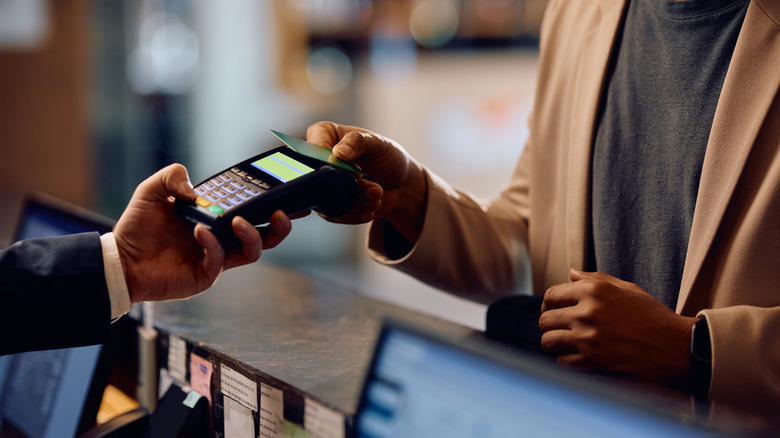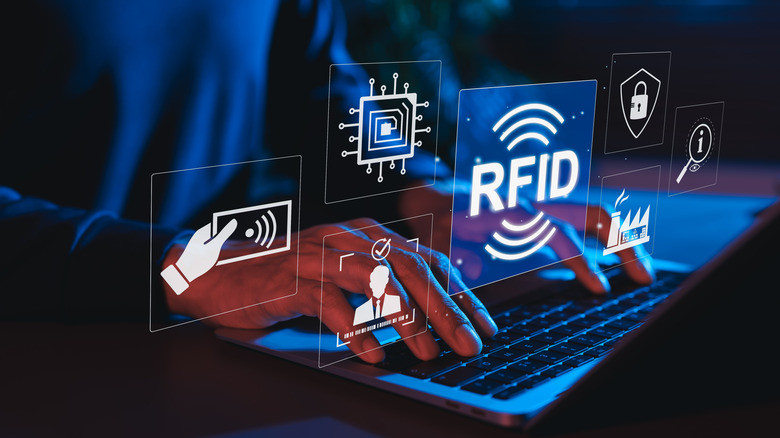The BBB Is Warning Holiday Shoppers: Be Careful Where You Tap Your Card
The holiday season is coming, which means retailers, restaurants, and grocery stores are all preparing for increased foot traffic as well as higher sales. Unfortunately, scammers are prepping as well, as there's no better time to line their pockets. But the Better Business Bureau is getting out in front of the problem with some great information about card tapping.
If you use tap-to-pay often, your transactions are usually safe and secure. But this quick and convenient method of payment is ideal for criminals, who can use it virtually anywhere. From outdoor markets to vendor booths and even door-to-door salesmen, scammers can masquerade as legitimate workers. They'll look like the real deal, but they're actually using tap devices to drain your account. It can be easy for them, especially when you're being rushed in a crowd of people. But rather than get distracted, just stop. When in doubt, don't tap. It's the easiest way to keep your money safe.
If you do trust the seller or the company they're supposedly representing, do a visual scan of the screen before tapping. Be sure the company name and more importantly the purchase amount are both correct. If there's any discrepancy, leave the card in your wallet and ask questions first. If everything looks right and you do tap your card, be sure to get a receipt. If the seller refuses to print one, keep an eye on your account, and contact your bank immediately if you see anything suspicious.
Beware of ghost tapping
Scammers are using the tap-to-pay system in order to steal from consumers, but the same thing can be done without a criminal physically touching your cards or even your mobile wallet. This method is called "ghost tapping." Though it sounds like a supernatural vaudeville act, there's nothing fun or entertaining about it.
Ghost-tapping uses Near Field Communication (NFC), the same system utilized by tap machines, and in NFC tags (which could be better than smart buttons). The worst part? It could happen anywhere, at anytime. Because your actual card isn't required for transactions to happen, a thief could merely bump into you in a busy store to get what they need. It may begin with small amounts at first, just so your bank doesn't immediately recognize the problem. Or, you could be hit with a massive charge. Either way, your card from that point on has been compromised.
The best way to avoid ghost-tapping is to use a Radio Frequency Identification (RFID) blocking wallet, which protects your info. This wallet can keep your cards safe from anyone using a device to read your data, essentially hacking your account. You should also set up real-time alerts and keep a close watch over your accounts to detect any odd transactions.

